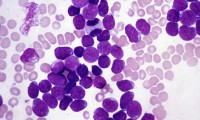-
the Mayo Clinic experience
- Source: acrabstracts.org
- 486
- January 30, 2018
-
New nanomedicine could prevent progression of pancreatic cancer
- Source: Israel21c
- 564
- January 30, 2018
-
Boosting cancer therapy with cross-dressed immune cells
- Source: medicalxpress
- 578
- January 25, 2018
-
Merck KGaA taps UK cancer research organizations to feed pipeline
- Source: Endpts
- 554
- January 23, 2018
-
Modification of the Associations Between Duration of Oral Contraceptive Use and Ovarian, Endometrial, Breast, and Colorectal Cancers
- Source: Jamanetwork
- 509
- January 22, 2018
-
Afatinib Approval Expanded for Rare Lung Cancer Treatment
- Source: Raredr
- 705
- January 17, 2018
-
AstraZeneca’s PARP inhibitor gains market edge with breast cancer approval
- Source: Biopharmadive
- 578
- January 17, 2018
-
Immune Cells Play Key Role in Early Breast Cancer Metastasis Even Before a Tumor Develops
- Source: mountsinai.org
- 538
- January 16, 2018
-
FDA approves first treatment for breast cancer with a certain inherited genetic mutation
- Source: finance.yahoo
- 545
- January 15, 2018
your submission has already been received.
OK
Subscribe
Please enter a valid Email address!
Submit
The most relevant industry news & insight will be sent to you every two weeks.













